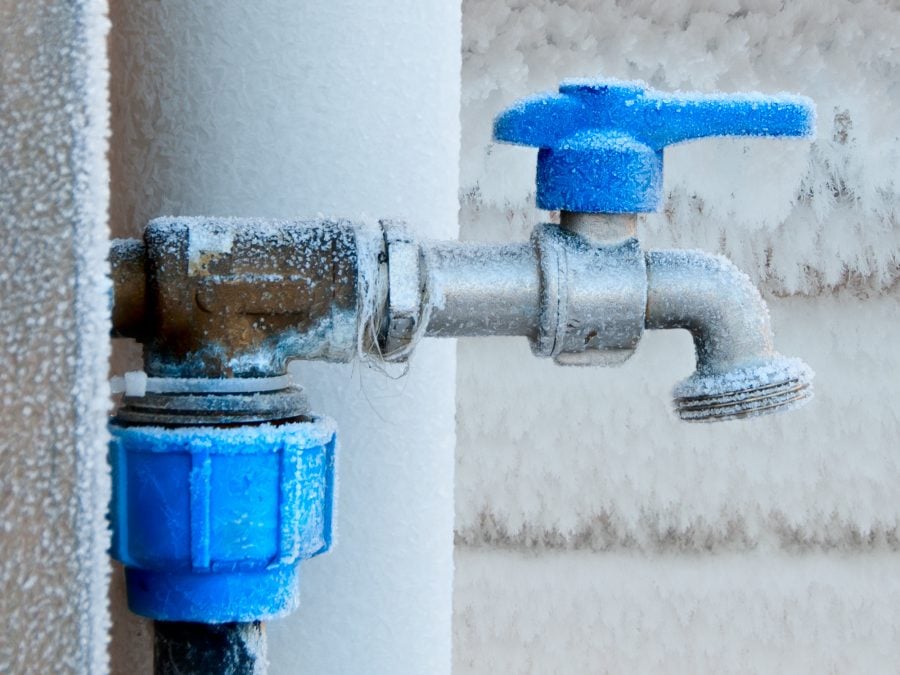Avoid Frozen Pipes in Winter: Professional Tips
Avoid Frozen Pipes in Winter: Professional Tips
Blog Article
This post directly below involving 6 Ways to Prevent Frozen Pipes is really attention-grabbing. Give it a try and make your own personal final thoughts.

Cold weather can ruin your pipes, especially by freezing pipes. Right here's just how to stop it from happening and what to do if it does.
Introduction
As temperatures decline, the threat of icy pipes increases, possibly causing pricey fixings and water damages. Understanding just how to stop frozen pipes is essential for property owners in cold climates.
Prevention Tips
Protecting susceptible pipes
Cover pipelines in insulation sleeves or use warm tape to safeguard them from freezing temperatures. Focus on pipes in unheated or exterior locations of the home.
Home heating strategies
Keep interior rooms effectively heated, specifically locations with plumbing. Open cabinet doors to allow cozy air to circulate around pipelines under sinks.
Exactly how to recognize icy pipelines
Search for lowered water flow from faucets, uncommon smells or noises from pipes, and noticeable frost on revealed pipelines.
Long-Term Solutions
Structural modifications
Take into consideration rerouting pipelines far from outside walls or unheated areas. Add extra insulation to attics, basements, and crawl spaces.
Upgrading insulation
Invest in premium insulation for pipelines, attics, and walls. Proper insulation helps maintain consistent temperature levels and lowers the threat of icy pipes.
Protecting Exterior Pipes
Garden hose pipes and outdoor taps
Detach and drain yard tubes before winter months. Mount frost-proof faucets or cover outside faucets with insulated caps.
Understanding Icy Pipes
What causes pipelines to ice up?
Pipes freeze when exposed to temperature levels listed below 32 ° F (0 ° C) for extended periods. As water inside the pipelines ices up, it broadens, putting pressure on the pipe walls and possibly causing them to break.
Dangers and problems
Frozen pipelines can bring about supply of water interruptions, home damages, and expensive repairs. Ruptured pipes can flooding homes and cause substantial structural damages.
Indicators of Frozen Pipes
Determining icy pipelines early can stop them from breaking.
What to Do If Your Pipelines Freeze
Immediate activities to take
If you presume frozen pipelines, keep faucets open to alleviate stress as the ice thaws. Make use of a hairdryer or towels soaked in hot water to thaw pipelines slowly.
Conclusion
Preventing icy pipes requires aggressive steps and quick feedbacks. By comprehending the causes, indicators, and preventive measures, home owners can safeguard their pipes throughout cold weather.
Helpful Tips to Prevent Frozen Pipes this Winter
UNDERSTANDING THE BASICS: WHY PIPES FREEZE AND WHY IT’S A PROBLEM
Water freezing inside pipes is common during the winter months, but understanding why pipes freeze, and the potential problems it can cause is crucial in preventing such incidents. This section will delve into the basics of why pipes freeze and the associated problems that may arise.
THE SCIENCE BEHIND FROZEN PIPES
When water reaches freezing temperatures, it undergoes a physical transformation and solidifies into ice. This expansion of water as it freezes is the primary reason pipes can burst. As the water inside the pipe freezes, it expands, creating immense pressure on the walls. If the pressure becomes too great, the pipe can crack or rupture, leading to leaks and water damage.
FACTORS THAT CONTRIBUTE TO PIPE FREEZING
Low Temperatures: Extremely cold weather, especially below freezing, increases the risk of pipes freezing. Uninsulated or Poorly Insulated Pipes: Pipes located in unheated areas, such as basements, crawl spaces, or attics, are more prone to freezing. Insufficient insulation or lack of insulation altogether exacerbates the problem. Exterior Wall Exposure: Pipes running along exterior walls are susceptible to freezing as they encounter colder temperatures outside. Lack of Heating or Temperature Regulation: Inadequate heating or inconsistent temperature control in your home can contribute to frozen pipes. PROBLEMS CAUSED BY FROZEN PIPES
- Pipe Bursting: As mentioned earlier, the expansion of water as it freezes can cause pipes to burst, resulting in significant water damage.
- Water Damage: When pipes burst, it can lead to flooding and water damage to your property, including walls, ceilings, flooring, and personal belongings.
- Structural Damage: Prolonged exposure to water from burst pipes can compromise the structural integrity of your home, leading to costly repairs.
- Mold and Mildew Growth: Excess moisture from water damage can create a favorable environment for mold and mildew growth, posing health risks to occupants.
- Disrupted Water Supply: Frozen pipes can also result in a complete or partial loss of water supply until the issue is resolved.
WHY CERTAIN PIPES ARE MORE PRONE TO FREEZING
- Location: Pipes located in unheated or poorly insulated areas, such as basements, crawl spaces, attics, or exterior walls, are at higher risk of freezing.
- Exterior Pipes: Outdoor pipes, such as those used for irrigation or exposed plumbing, are particularly vulnerable to freezing as they are directly exposed to the elements.
- Supply Lines: Pipes that carry water from the main water supply into your home, including the main water line, are critical to protect as freezing in these lines can affect your entire plumbing system.
- Underground Pipes: Pipes buried underground, such as those connected to sprinkler systems or outdoor faucets, can be susceptible to freezing if not properly insulated.
https://busybusy.com/blog/helpful-tips-to-prevent-frozen-pipes-this-winter/

Do you really like more info about How to prepare your home plumbing for winter weather? Make a short review further down. We'd be delighted to know your insights about this review. We are looking forward that you come back again before long. Enjoyed our blog entry? Please quickly share it. Help another person find it. Many thanks for your time. Return soon.
Booking Report this page